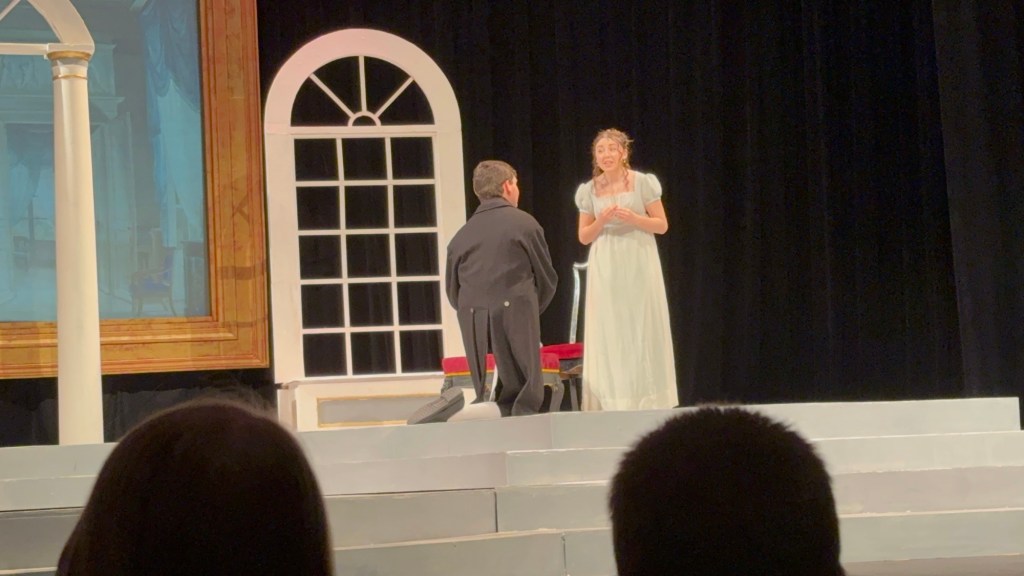The original was posted Dec. 2011.
I’m reposting it again as I take a walk down memory lane of Christmas pasts. Despite explaining to my kids over the years why I allowed them to believe, still get, “but you lied to us!” And as someone who prides themselves on being honest with their kids, it’s the truth. I did lie, but hopefully for the right reasons (believing in magic and that you are loved and acknowledged for just being you by Santa). I suspect they’ll keep up the traditions with their future families, but I guess we’ll see. 😆🥰
** ** ** **
When I was seven years old, I found out the truth about Santa. My Mom sat me down at the dinner table and read an article to me that revealed that Santa–the one I had believed in, got so excited for, and couldn’t wait until Christmas Eve to see–wasn’t real. I can remember crying at the table for a long time afterwards. At first, I was very disappointed to learn the truth. Santa had been a magical part of the holiday; I believed that he loved all children and delivered presents to everyone. Santa made me feel special: he knew who I was, he made sure I behaved and rewarded me with toys picked out or made especially for me. After realizing that Santa and several other mythical characters I’d grown to love (the Easter Bunny and the Tooth Fairy) didn’t exist, I started to get mad! My parents had lied to me. And though they’d done it with good intentions–perhaps to let me believe in magic or something special–I felt like a fool. Who else knew that Santa wasn’t real? My older sister must have known the truth. I felt like everyone in the world must have thought that I was a stupid kid for walking around getting all excited about Santa and believing he was real. I felt very betrayed. The kicker came when my parents asked me to keep the secret from my younger sister so that she could enjoy the magic of Santa for another year or two before learning the truth. My first reaction was ‘you’ve got to be kidding me, I’ve just discovered the truth and you want me to keep it a secret–it’s a BIG secret!’ It was a pretty tall order for a seven year old, especially one that was still sad, disappointed and angry with her parents.
I think about this childhood revelation each year as we get closer to Christmas, and I’ve come to better understand the struggle my parents faced. While you want your child to experience the magic of Santa when they’re young, you know there will be the great disappointment of learning the truth down the road. I know we have precious few years left before my children start to question the existence of Santa so my husband and I try not to make too big a deal about the whole thing. When our kids ask questions like ‘Where does Santa get all the toys?’ or ‘How does Santa know where we live?’ We simply turn the question back to them: ‘Where do you think Santa gets all his toys?’, ‘How do you think he knows where we live?’ They come up with some pretty clever answers: ‘He probably get his toys from the store’, ‘Yes, you’re probably right,’ we reply. ‘He must have a phone book so he knows where we live’, ‘That could be,’ we answer. I feel like I’m constantly walking a very thin line by trying to maintain a thread of truth in how I respond. It is so important for my husband and me to be truthful with our kids, and sometimes the line between lying and storytelling is a precarious one. I want the foundation we are building with our children to be one of trust and sometimes I feel the Santa story could put that in jeopardy if they discover the truth in the wrong way. I want my children to know they can trust me and that I won’t ever deliberately cause them any pain or deceive them. But at the same time, I think there is great benefit in children believing that someone completely outside of their family believes in them and loves them for exactly who they are, be it Santa or some other higher power. I am bracing myself for the day they ask me to come clean about Santa, but I’m also preparing myself for it too. I’ll tell them the truth, share what we struggled with in deciding whether or not to tell them and let them feel whatever they need to feel, be it understanding, anger, disappointment, sadness or anything else.
I never did tell my younger sister about Santa. If I remember correctly, she learned the truth from some neighborhood kids not too long after the Christmas I found out. She was spared the ‘story at the table’ and while she might not appreciate that, knowing that she didn’t connect the experience with the let down of the news coming from my parents, I do. While the experience that I had in being read the story was painful, my mom had told me the truth and believed I was at an age where I could handle it–she thought she was doing me a favor by telling me before the neighborhood kids had a chance to. Upon reflection, I wish she had just acknowledged why she allowed me to believe in Santa in the first place, what she hoped I would gain from believing and why she told me the truth when she did; I wish she had acknowledged that this was hard news to accept and that it was okay to be upset.
How do you talk to your child about Santa? Have you discussed a plan to reveal the truth when you feel they’re ready to hear it? While I still haven’t figured out all of the details of this yet, I know that I want to make sure my children understand that while there might not be a Santa, the love and magic of Christmas still exists in the friends and family who love them just the way they are.
** ** **
I’ll be off through the end of the years to enjoy the holidays and back in the New Year.



